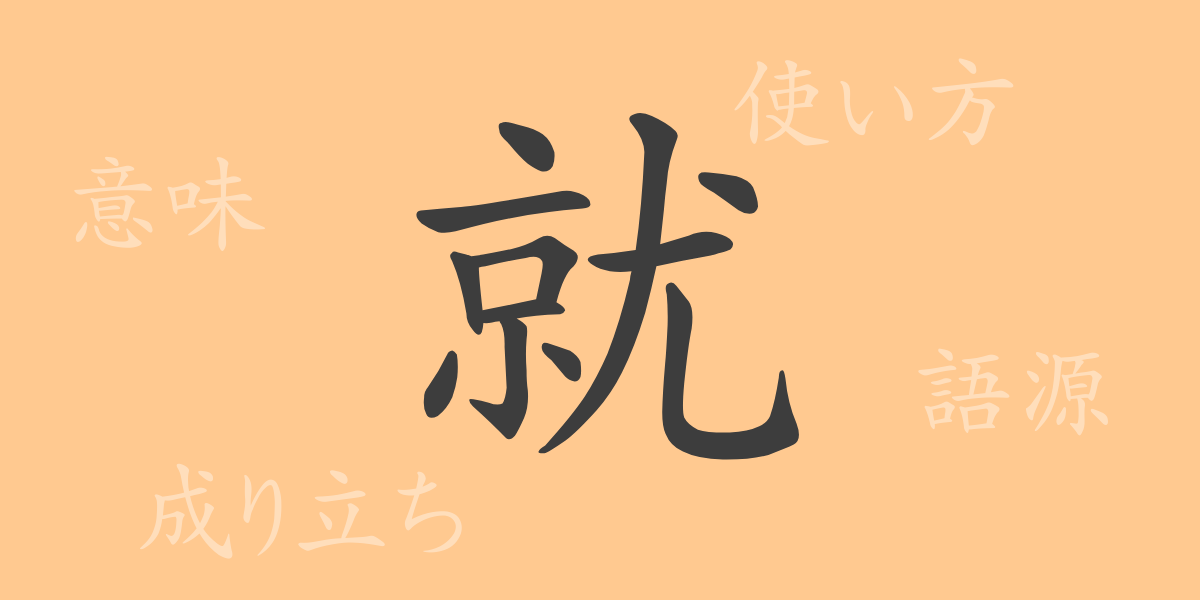The richness of the Japanese language lies in the profound meanings and diversity brought by its kanji characters. The commonly used kanji “就(しゅう, shuu)” is no exception, being employed in various contexts closely related to our daily lives. In this article, we will delve into the origins, modern uses, and idiomatic expressions involving “就(しゅう, shuu)” to uncover its allure.
Origin of 就(しゅう, shuu) (Etymology)
The kanji “就(しゅう, shuu)” originates from ancient Chinese oracle bone script. It initially depicted “a pig inside a house,” symbolizing “a person residing in a house.” Over time, it evolved to mean “engaging in an activity” or “assuming a state or position.”
Meaning and Usage of 就(しゅう, shuu)
The kanji “就(しゅう, shuu)” primarily means “to match a state or condition,” “to assume a specific position or place,” or “to start an action.” It is frequently used in expressions indicating a transition to a new phase, such as “就職(しゅうしょく, shuushoku)” (employment) and “就任(しゅうにん, shuunin)” (taking office).
Readings, Stroke Count, and Radical of 就(しゅう, shuu)
The kanji “就(しゅう, shuu)” has various readings and structural elements, which change based on its use.
- Reading: The on’yomi (音読み) reading is “シュウ(しゅう, shuu),” and the kun’yomi (訓読み) readings include “つく.る(つくる, tsukuru),” “つ.く(つく, tsuku),” and “いた.す(いたす, itasu).”
- Stroke count: The kanji “就(しゅう, shuu)” has 12 strokes.
- Radical: The radical is 尢(まげあし, mageashi).
Idioms, Phrases, and Proverbs Using 就(しゅう, shuu)
There are numerous idioms, phrases, and proverbs in Japanese that incorporate the kanji “就(しゅう, shuu).” Here are some examples:
- 就職(しゅうしょく, shuushoku): Getting a job or employment.
- 就任(しゅうにん, shuunin): Assuming a position or office.
- 就寝(しゅうしん, shuushin): Going to bed or lying down to sleep.
- 就中(しゅうちゅう, shuuchuu): Especially, particularly.
These idioms are frequently used in everyday life and business contexts.
Conclusion on 就(しゅう, shuu)
The kanji “就(しゅう, shuu)” is an important character rooted in our daily lives. Its diverse meanings and uses highlight the richness of Japanese expressions. Through this article, we hope to deepen your understanding of “就(しゅう, shuu)” and enhance your ability to use it appropriately.

























